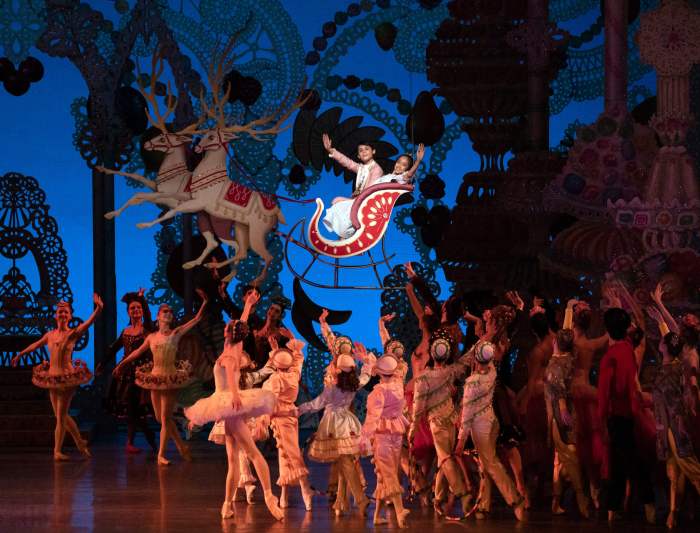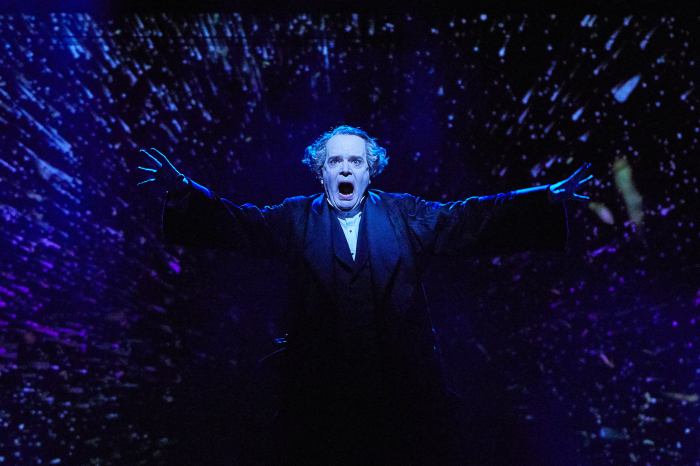The past year has been one of unending angst, uncertainty, insecurity and, in the midst of it all, uneasy self-reflection for the New York theater community, as live theater struggles to return and scattered streaming performances bring in little revenue.
The challenges facing the New York theater go beyond merely returning to pre-pandemic normalcy, back when shows were regularly selling out and breaking box office records. In the midst of last summer’s Black Lives Matter protests, theatrical institutions (after initially releasing boilerplate statements in support of the protests) were compelled to seriously reckon with how they can be more inclusive and equitable onstage, offstage and in the office.
One of the most alarming sagas of the past year has involved the Flea, an Off-Off-Broadway theater in Tribeca, which for years had relied on an army of young, unpaid artists known as “the Bats.” In June of last year, in response to allegations of serious mistreatment made by the Bats, the Flea pledged to radically revamp its production model and institutional culture. However, in December, the Flea added insult to injury by shutting down the Bats altogether.
The issue of workplace abuse within the theater industry arose again two weeks ago when the Hollywood Reporter published a stunning expose about how Broadway and Hollywood producer Scott Rudin has subjected numerous young assistants at his office to acts of bullying and harassment over the course of decades.
I have never met Rudin, and I have no first-hand knowledge about these allegations. However, Rudin’s bullying behavior has long been an open secret in the industry. It even served as the inspiration for the 1994 film “Swimming with Sharks,” in which Kevin Spacey played a movie producer modeled on Rudin. However, like so much else prior to the pandemic, it was either overlooked or accepted. Rudin’s behavior also fit into a historical pattern of notoriously domineering producers on Broadway, from J.J. Shubert and David Merrick to Harvey Weinstein, who was the lead producer of “Finding Neverland” in 2015.
Following the article’s publication, many in the theater industry expressed disbelief over the fact that virtually no prominent artists–many of whom have worked with or been employed by Rudin at some point–publicly responded to it. Eventually, Tony-winning actress Karen Olivo, who was still starring on Broadway in “Moulin Rouge!” at the time of the shutdown, announced that she was leaving the show (which itself had not been produced by Rudin) in protest of the theater industry’s apparent indifference.
Finally, on Saturday morning, the Washington Post broke the news that Rudin had issued a statement expressing contrition for his “history of troubling interactions with colleagues” and promising that he would “step back from active participation” in Broadway shows–whatever that means.
As of just last year, Rudin was the most prolific and prestigious commercial producer on Broadway. Although he primarily produced plays (including starry revivals and work by emerging playwrights such as Lucas Hnath and Taylor Mac), his musical credits included “The Book of Mormon,” the smash revival of “Hello, Dolly!,” the divisive revival of “West Side Story” (which opened shortly before the shutdown began) and the soon-to-open revival of “The Music Man” starring Hugh Jackman and Sutton Foster.
More recently, Rudin has been a leading force behind the State’s “NY PopsUp” series, which is intended to function as a pilot program for the return of live performance. A few days before the article came out, Nathan Lane (who headlined Rudin’s production of “Gary”) and Savion Glover (who choreographed Rudin’s production of “Shuffle Along”) gave short solo performances at Broadway’s St. James Theatre as part of the series.
The current situation presents a moral dilemma for everyone who benefited from Rudin, from A-listers such as Denzel Washington (who starred in Rudin’s revivals of “A Raisin in the Sun” and “The Iceman Cometh”) and Aaron Sorkin (who penned the blockbuster adaptation of “To Kill a Mockingbird” produced by Rudin) to audience members and theater journalists who got to see all the artistically daring work and lavish productions that Rudin brought to Broadway.
More tales of Rudin’s past misbehavior may soon come out. Actors’ Equity Association, the labor union representing professional actors, is demanding that Rudin “release his staff from any nondisclosure agreements they may have signed as a condition of employment.”
Given the current circumstances, it is unclear whether Rudin will eventually regain a seat at the head of the table of the post-pandemic Broadway, and if not, whether that will affect the quality and quantity of shows that get produced on Broadway. Will other producers be ready and willing to step up and present big-budget revivals of musical theater classics, or be able to sway Laurie Metcalf and Glenda Jackson to appear regularly onstage?
One can hope that the absence of a longtime heavy-hitter like Rudin, whose shows have occupied prime Broadway theaters year after year, could allow new creative producers and industry leaders –hopefully better behaving ones–to emerge and take the spotlight.






































